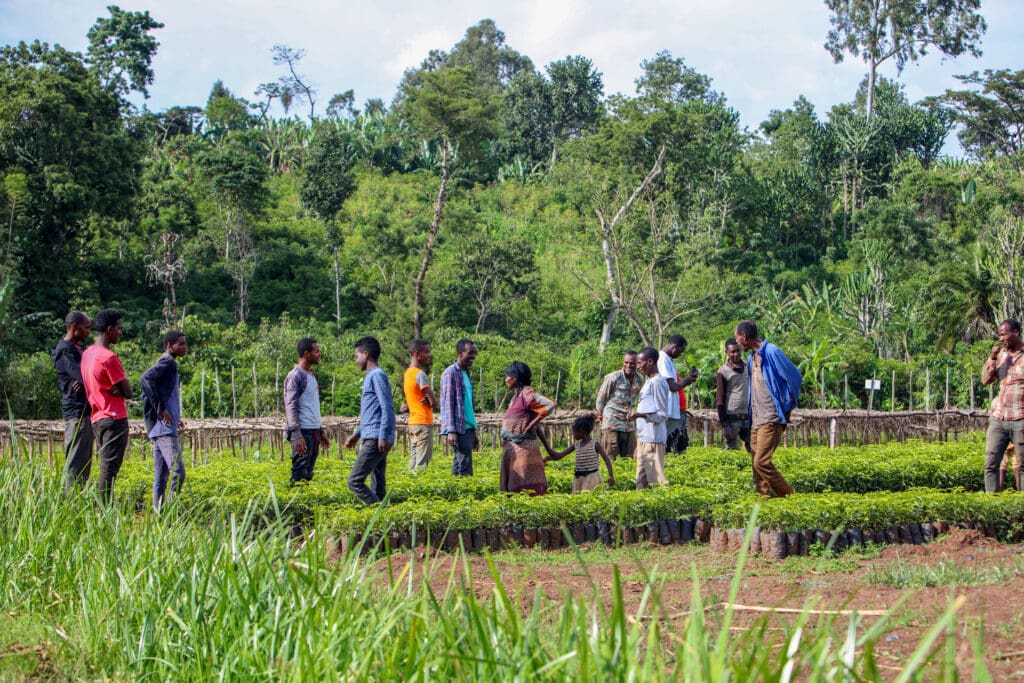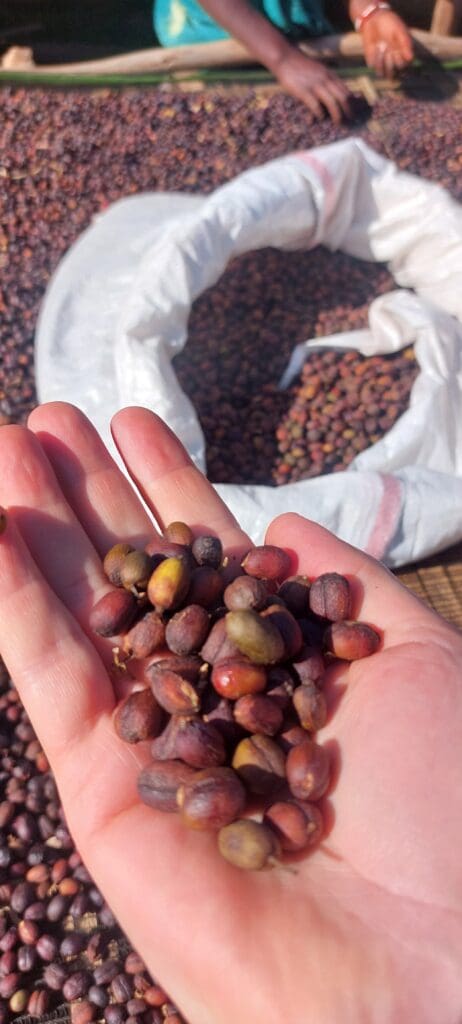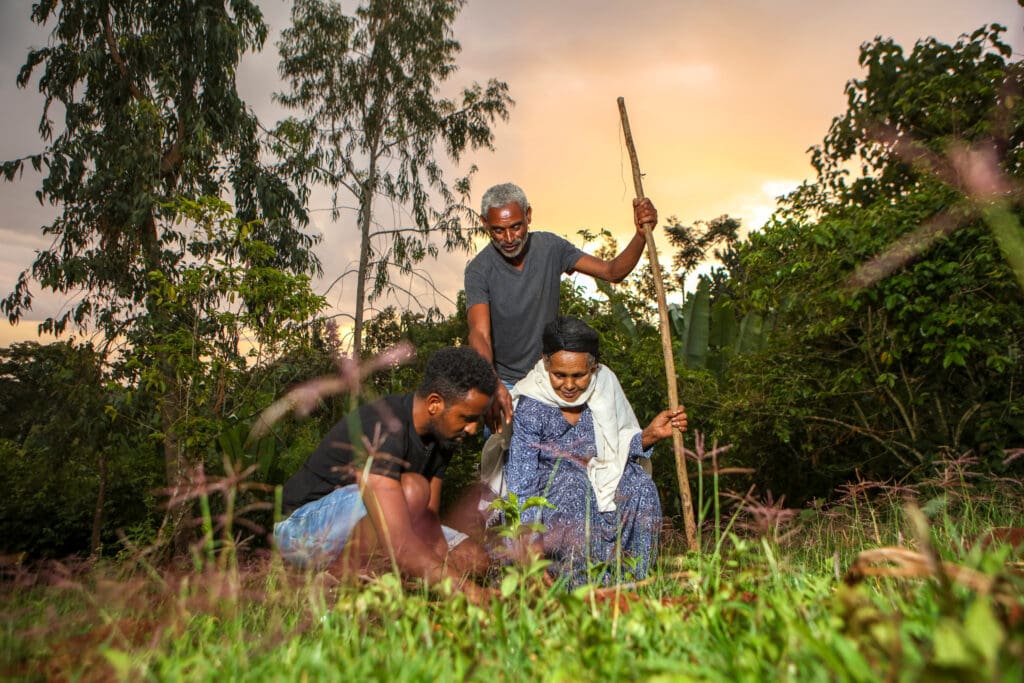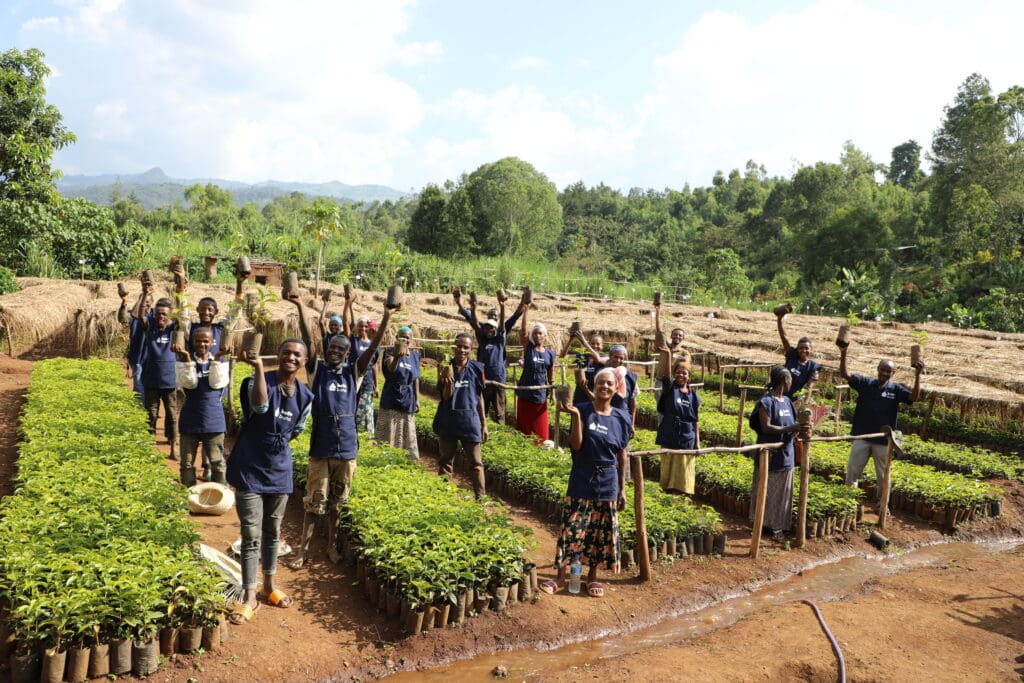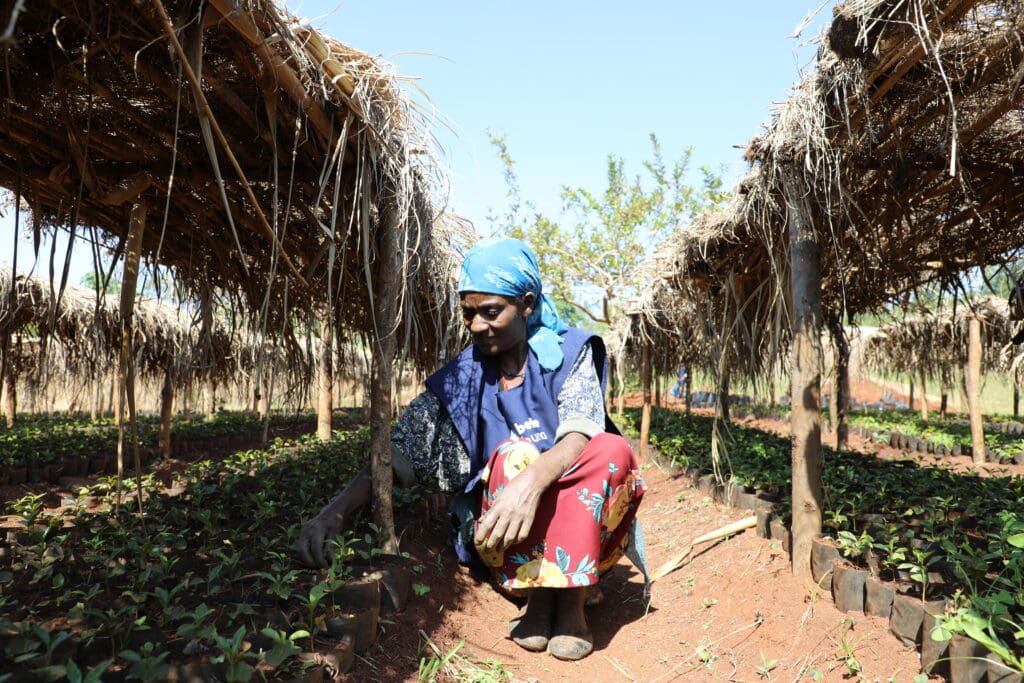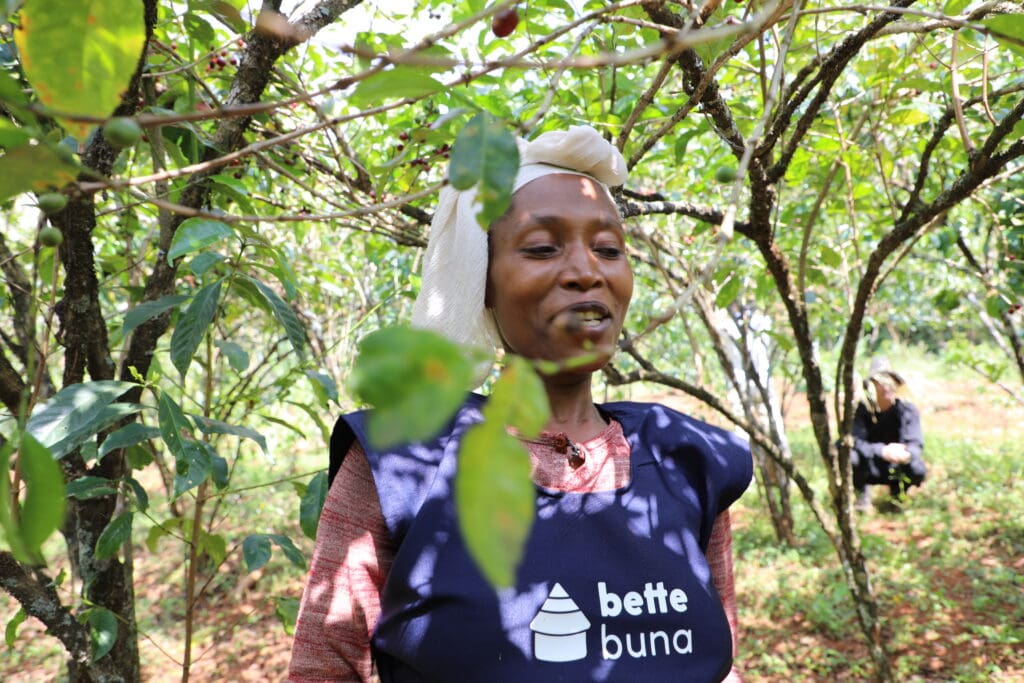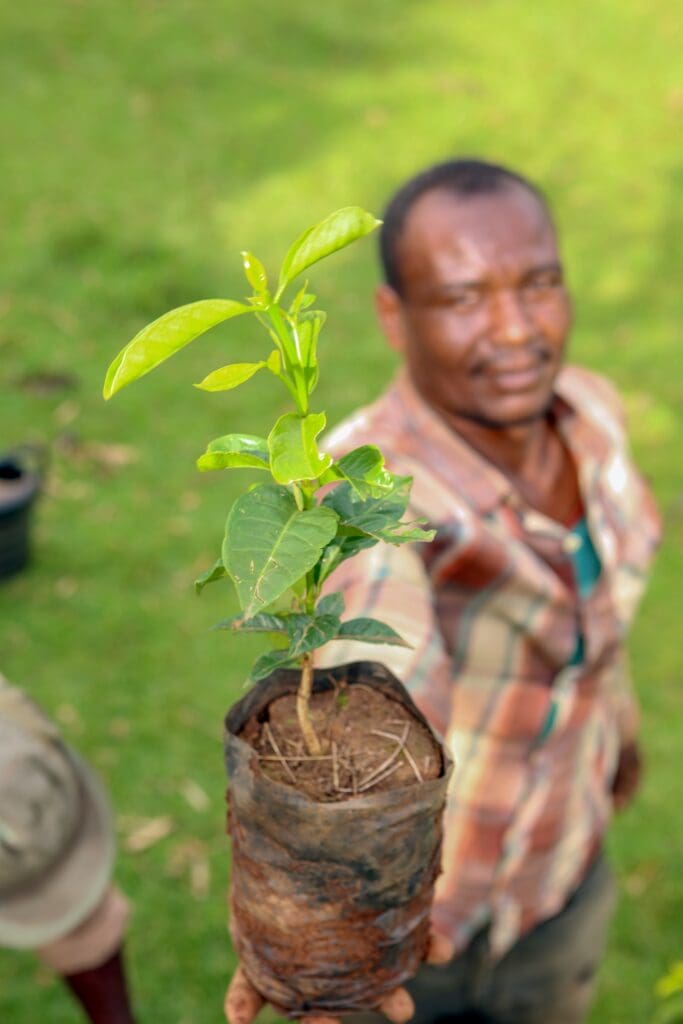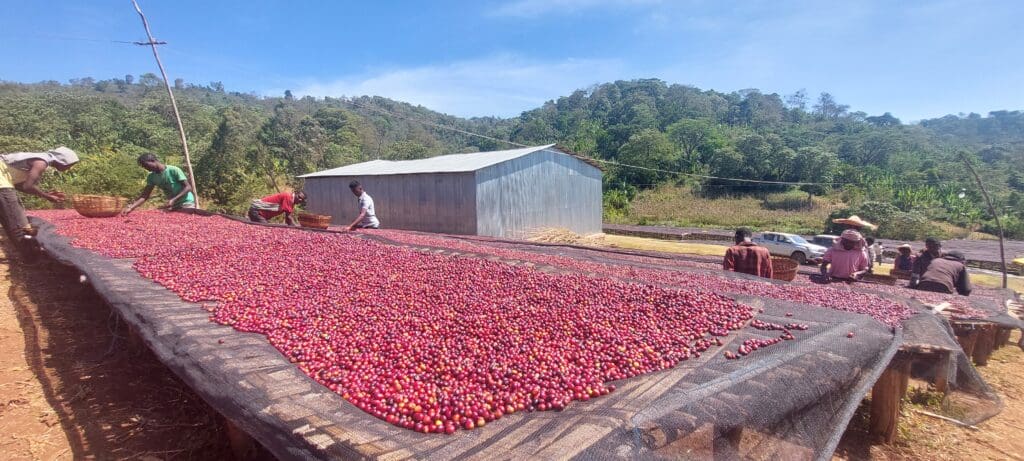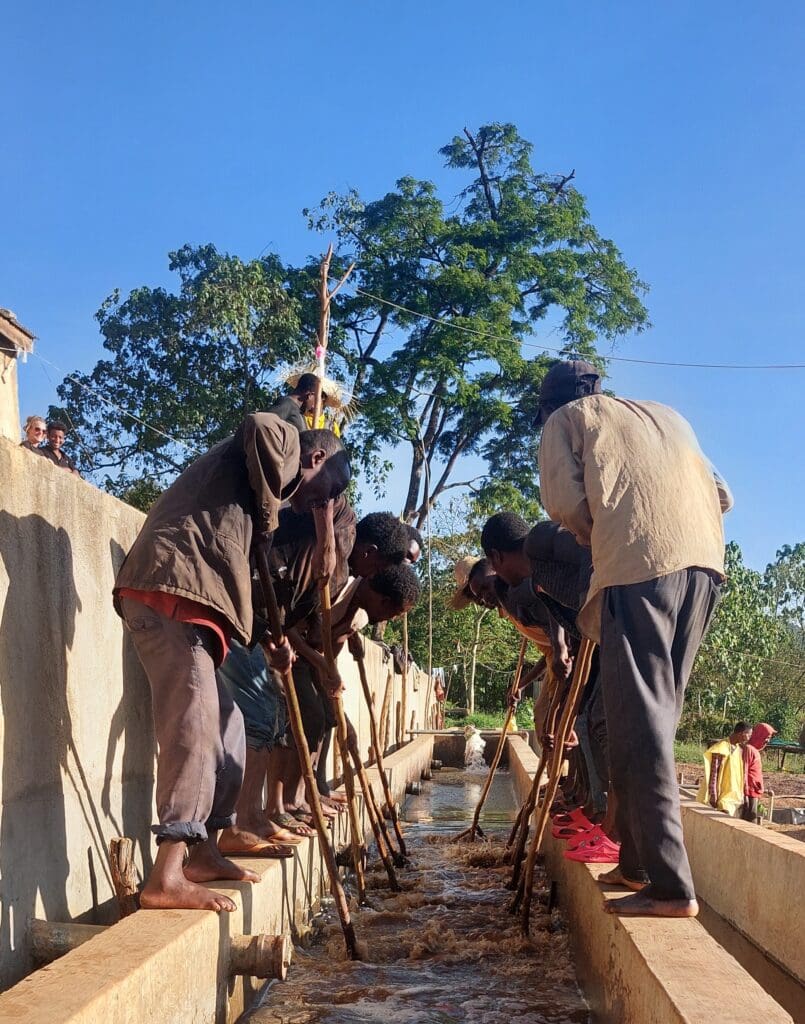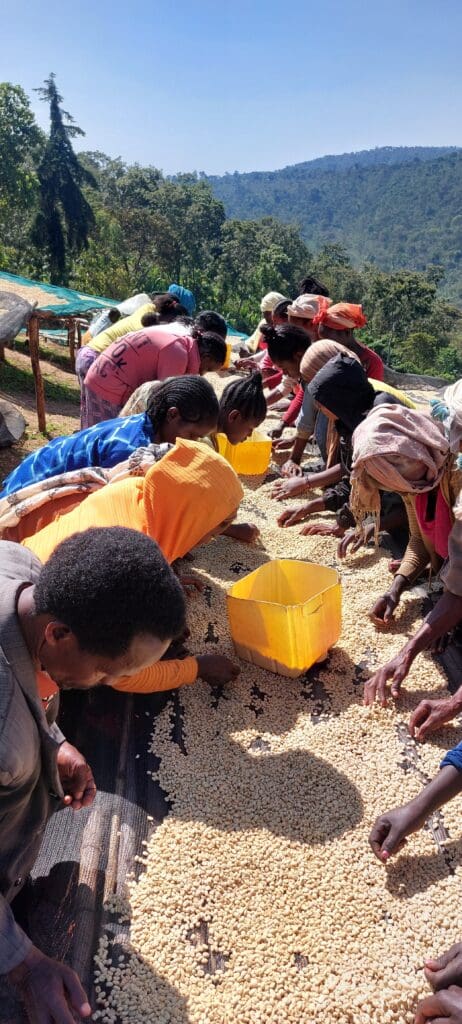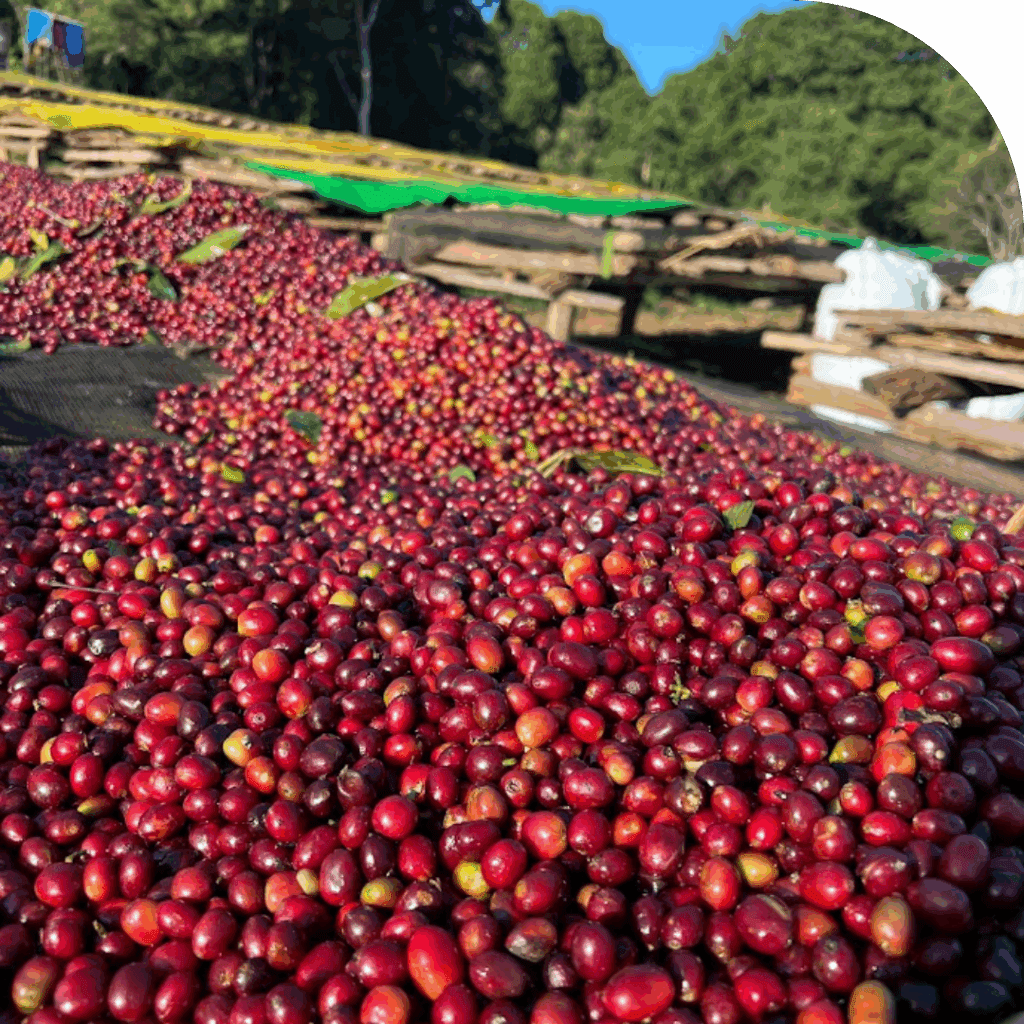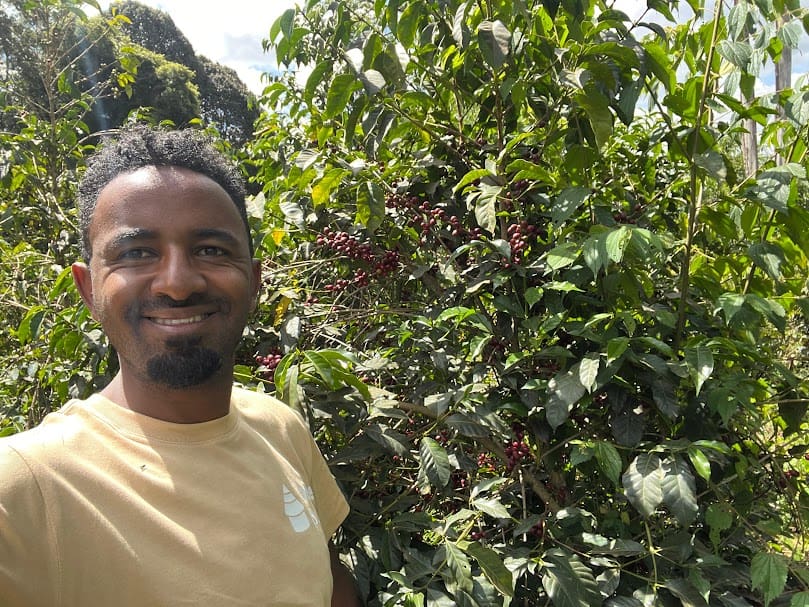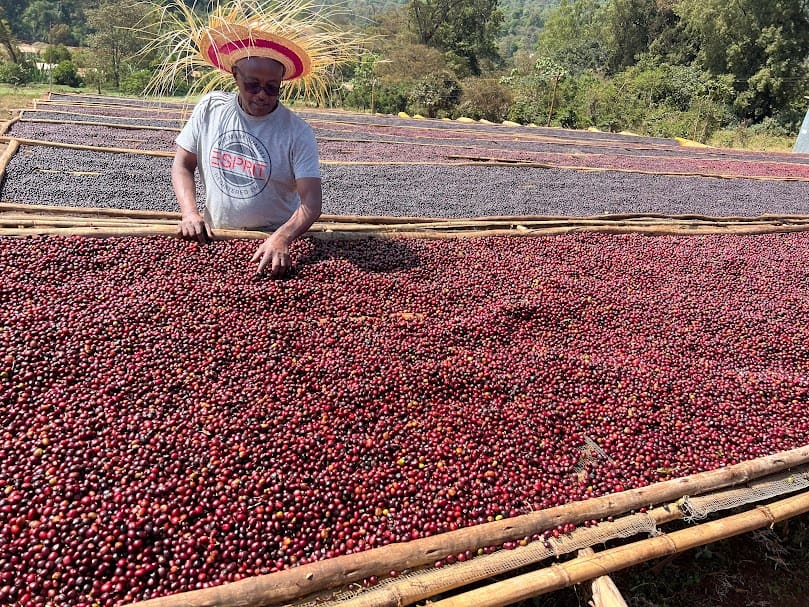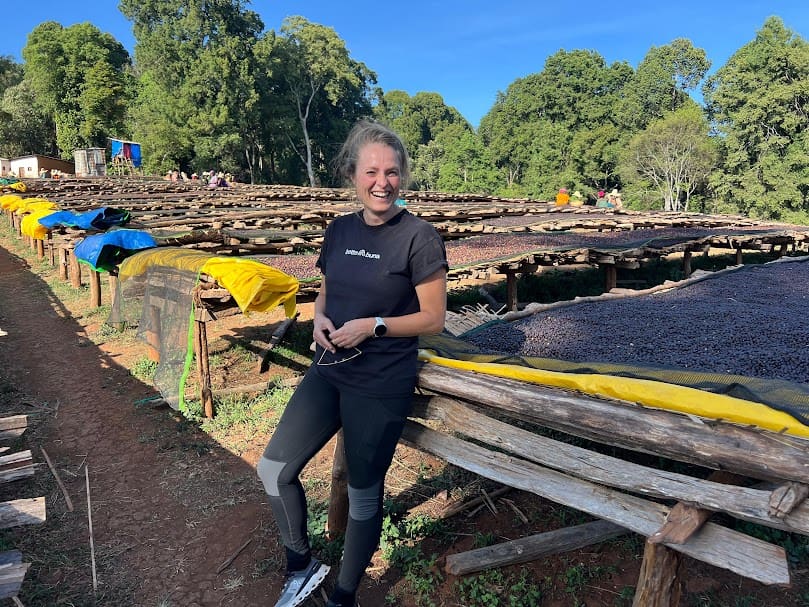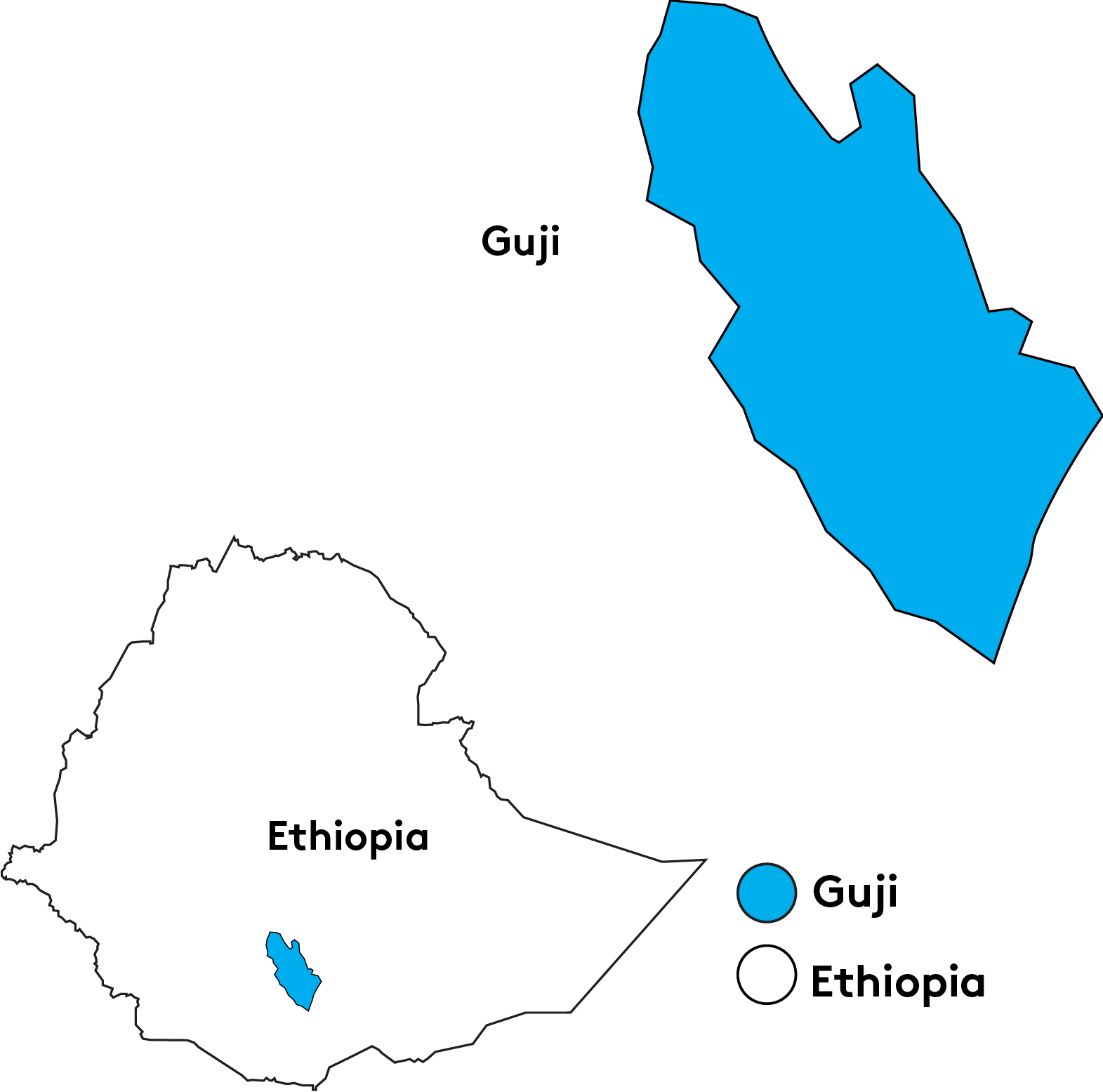Bette Buna is a vertically integrated coffee company founded in 2020 by husband and wife Dawit and Hester. Their coffee journey began following the passing of Dawit’s grandfather, who farmed coffee with his wife, Emame, in Tefari Kela, Sidama for nearly a century. Dawit and Hester took over operations at the family farm committed to the mission of creating equal opportunities for coffee communities through the production of outstanding coffee. Today, Bette Buna operates farms in the coffee growing regions of Guji, Yirgacheffe, Sidama, and Bench Maji, as well as sourcing coffee from allied farmers throughout these regions.
This lot is a blend of coffees from community farmers who have become proficient in home processing. By combining small amounts of carefully processed coffee into a consistent lot, Bette Buna is able to create meaningful impact across entire communities. For roasters, this translates into a steady, reliable coffee—perfect as a daily espresso or as a versatile blend component.
After local dry milling to remove the hulls, the coffee underwent hand sorting to eliminate primary defects. The bags of green coffee were then transported by truck on a 3–5 day journey to Bette Buna’s main dry mill in Gelan, near Addis Ababa. There, the beans were cleaned, graded by size and density, color-sorted, and finally bagged for export.
As the coffee industry continues to grow in Ethiopia, the country’s historic growing areas don’t always match up with the current-day maps defining Ethiopia’s geography. Our goal is to provide the clearest and most accurate information about the coffees that we offer, and we’re proud to provide the most specific location information we have for these coffees. Learn more about Ethiopia’s coffee growing regions on our blog.
Region: Oromia
Zone: Guji
Woreda: Megadu
Kebele: –
ECX Growing Area: Guji
